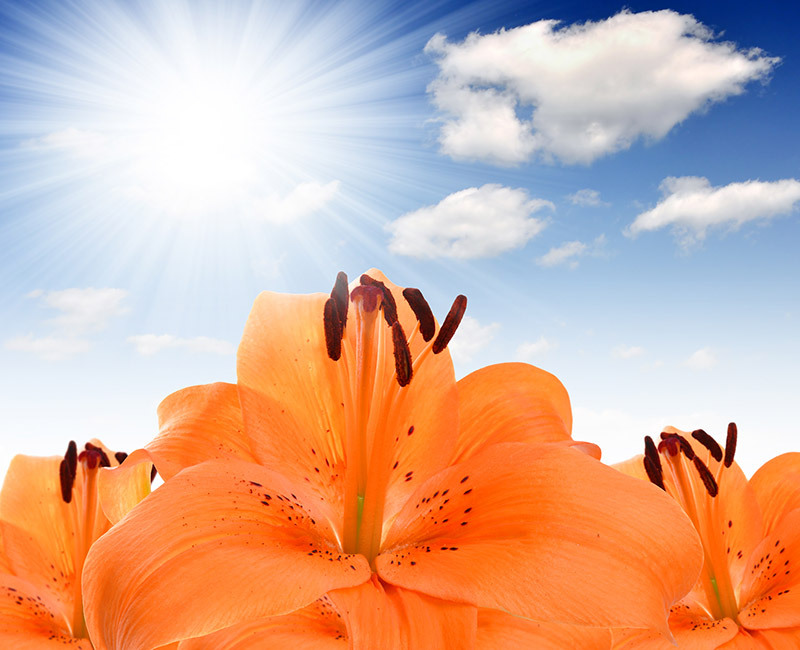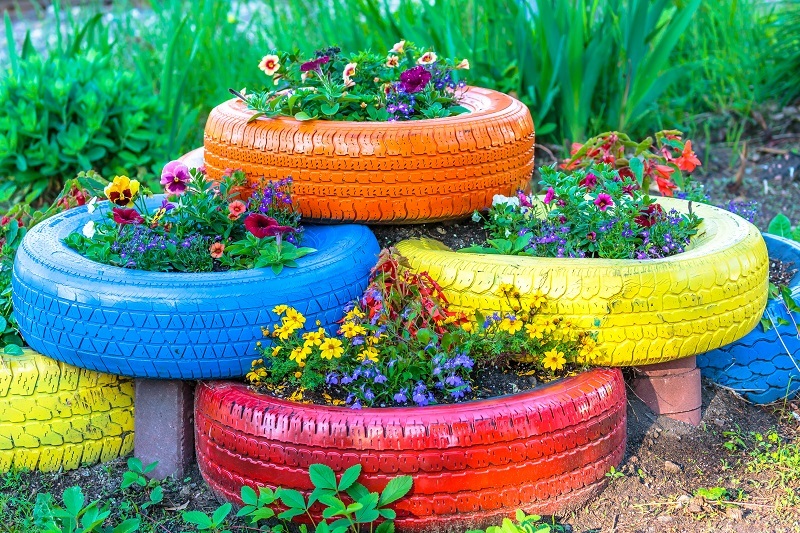Unravel the stories of birth month flowers and what they convey
Posted on 18/08/2025
Unravel the Stories of Birth Month Flowers and What They Convey
Have you ever wondered why each month is associated with a particular flower? These beautiful birth month flowers have rich histories, unique symbolism, and timeless stories that weave together cultural traditions and personal meaning. In this comprehensive guide, we'll dive deep into the fascinating tales behind each birth flower, what these blossoms symbolize, and how you can use them to add sentiment to your celebrations or gifts.
What Are Birth Month Flowers?
Just like birthstones, birth month flowers are floral symbols assigned to each month of the year. Their origins trace back centuries, rooted in Roman, Victorian, and ancient customs. By giving someone their birth flower, you offer more than a beautiful bloom -- you give a message, a wish, and sometimes a blessing filled with meaning passed down through generations.
- January - Carnation or Snowdrop
- February - Violet or Primrose
- March - Daffodil
- April - Daisy or Sweet Pea
- May - Lily of the Valley or Hawthorn
- June - Rose or Honeysuckle
- July - Larkspur or Water Lily
- August - Gladiolus or Poppy
- September - Aster or Morning Glory
- October - Marigold or Cosmos
- November - Chrysanthemum
- December - Narcissus or Holly
Let's explore each month's assigned flowers, uncovering their stories and discovering what they convey.

January: Carnation and Snowdrop
The Carnation's Tale
With its ruffled petals and broad spectrum of colors, the carnation brims with meanings. In Victorian times, carnations symbolized fascination, admiration, and love. Its name is believed to come from "coronation" due to use in ceremonial crowns.
- Pink carnations stand for a mother's undying love
- Red carnations signify admiration and affection
- White carnations express pure love or luck
As the coldest month's flower, carnations offer warmth and reassurance -- perfect for January birthdays.
The Story of the Snowdrop
The rare snowdrop is a symbol of hope and rebirth, appearing amidst the frost at winter's end. Its delicate, hanging bell shape has inspired poetry and symbolizes new beginnings, making it the perfect wish for January-born loved ones.
February: Violet and Primrose
Violet: Modesty and Faithfulness
Violets, found in literature and mythology, represent modesty, faithfulness, and spiritual wisdom. Associated with love that's true and humble, they also convey watchfulness. Gifting violets says, "I'll always be true."
Primrose: The First Rose
The name "primrose" translates to "first rose," blooming early in the year. In English folklore, the primrose told of young love and renewal. It's a fitting symbol for February as winter gives way to spring.
March: Daffodil
Daffodils are trumpeters of spring, symbolizing rebirth, new beginnings, and unwavering hope. According to legend, gifting a single daffodil brings misfortune, while a bouquet brings happiness -- a lovely reason to gift these cheery blooms in abundance to anyone born in March!
April: Daisy and Sweet Pea
Daisy: Innocence and Joy
Daisies charm with their simple, open faces and associations with innocence, purity, and joy. In Norse mythology, they were sacred to Freya, goddess of love. Daisies also say, "I'll never tell," referencing their role in secret-keeping.
Sweet Pea: Bliss and Goodbye
Sweet peas encapsulate pleasure and gratitude, but also the bittersweetness of goodbyes. Victorians gave sweet peas to say thank you after a lovely visit, wrapping up April's theme of renewal with appreciation.
May: Lily of the Valley and Hawthorn
Lily of the Valley: Return to Happiness
Known for their delicate fragrance, the lily of the valley represents humility, sweetness, and a "return to happiness". In weddings, they symbolize purity and luck. According to legend, these tiny bells grew from Eve's tears of joy as she left paradise.
Hawthorn: Hope and Fertility
Hawthorn blossoms are woven through May festivals in Europe, used in garlands and decorations. This flower symbolizes hope, protection, and new beginnings -- aligning with May Day celebrations that usher in spring.
June: Rose and Honeysuckle
Rose: Love in Every Color
No flower is more storied than the rose. Across cultures and centuries, it is the ultimate symbol of love, passion, and beauty. The color of the rose carries its own meaning:
- Red roses: True love
- White roses: Purity and remembrance
- Yellow roses: Friendship and joy
- Pink roses: Gratitude and grace
Honeysuckle: Bonds of Love
Honeysuckle symbolizes devotion and the sweet bonds of love. Its climbing vines and sweet scent make it a fitting floral envoy for June birthdays, emphasizing lasting affection.
July: Larkspur and Water Lily
Larkspur: Lightness and Levity
Larkspurs' tall spires and pastel colors are tied to lightness of heart, positivity, and open-heartedness. In folklore, they were believed to protect against evil and negativity.
Water Lily: Enlightenment
In many traditions, the water lily stands for purity and enlightenment. In Buddhist and Egyptian myths, the flower represents the soul's journey and spiritual awakening -- a meaningful wish for July babies.
August: Gladiolus and Poppy
Gladiolus: Strength and Moral Character
The name gladiolus comes from "gladius," Latin for "sword," referencing its shape. This flower embodies strength, integrity, and remembrance. It's a great choice to honor someone whose birthday is in August.
Poppy: Imagination and Peace
Poppies exude imagination, peace, and rest. Red poppies, in particular, are symbols of remembrance for the fallen, especially in WWI. The poppy's association with sleep and dreams evokes serenity.
September: Aster and Morning Glory
Aster: Wisdom and Faith
The aster, named after the Greek word for "star," signifies wisdom, patience, and faith. Ancient myths said burning asters warded off serpents. For September birthdays, asters convey a wish for love and delicate beauty.
Morning Glory: Affection
Morning glories bloom at dawn, symbolizing unrequited affection and the fleeting nature of happiness. In Japanese tradition, they're associated with love and mortality, a gentle reminder to cherish the present.
October: Marigold and Cosmos
Marigold: Warmth and Creativity
Fiery marigolds bring warmth, creativity, and passion to October. In some cultures, marigolds honor the departed and symbolize the sun's guiding power. They're seen as expressions of strong, undying love.
Cosmos: Harmony and Order
Cosmos flowers stand for order, harmony, and tranquility. Their symmetry and vibrant hues make them a beacon of balance and beauty -- perfect for an October wish of peace.
November: Chrysanthemum
Known for its longevity and variety of color, the chrysanthemum embodies joy, friendship, and loyalty. In Asia, it's a symbol of the sun and immortality, and has been celebrated in festivals for centuries. Chrysanthemums are also linked to honesty and noble character, making them an ideal tribute for November birthdays.
December: Narcissus and Holly
Narcissus: Respect and Faithfulness
Narcissus, also known as paperwhite, represents good wishes, respect, and faithfulness. In Greek myth, narcissus symbolizes beauty and self-reflection. In Chinese culture, it's seen as a sign of prosperity and luck for the new year.
Holly: Protection and Cheer
Holly's glossy leaves and red berries make it a holiday favorite. Ancient cultures associated holly with protection, good fortune, and cheerful spirits, making it the perfect end-of-year birthday wish.
How to Incorporate Birth Month Flowers Into Your Life
Gifting with Meaning
Giving someone a bouquet of their birth month flower is a thoughtful gesture -- but there are many other creative ways to use these symbolic blossoms:
- Jewelry: Find pendants or charms shaped like birth flowers for a personal touch
- Stationery: Use birth flowers in cards or invitations for sentimental value
- Home Decor: Display fresh flowers or floral prints in your home to celebrate your birth month
- Tattoos: Commemorate a birthday or loved one with a birth flower tattoo
Combining Birth Flowers and Birthstones
Pairing birth month flowers with matching birthstones creates a meaningful and layered gift, blending heartfelt stories and timeless traditions.

Why Do Birth Month Flowers Matter?
The tradition of assigning flowers to months connects us to the cycles of nature -- and to each other. Birth flowers personalize wishes for happiness, health, and prosperity, making each occasion more memorable. Their hidden meanings let us speak a floral language to convey thoughts that words alone can't capture.
Whether you're celebrating a birthday, an anniversary, or any special occasion, birth month flowers offer a timeless, meaningful way to show you care.
Final Thoughts: The Lasting Legacy of Birth Month Flowers
Each month's bloom tells its own story, from the resilient carnation in January to December's cheerful holly. By learning the stories of birth month flowers and what they convey, we gain insight not just into floral history, but into how we connect, celebrate, and express emotion.
Next time you're choosing a bouquet, consider the individual's birth flower. You'll not only give beauty, but also centuries of meaning, lore, and love.
Unravel the stories of birth month flowers and embrace their rich symbolism -- one petal at a time.
Latest Posts
Unravel the stories of birth month flowers and what they convey
Beautify with Ease: Top 10 Low Maintenance Office Plants
3 Quick Tips to Keep Your Flowers Fresh and Bright





